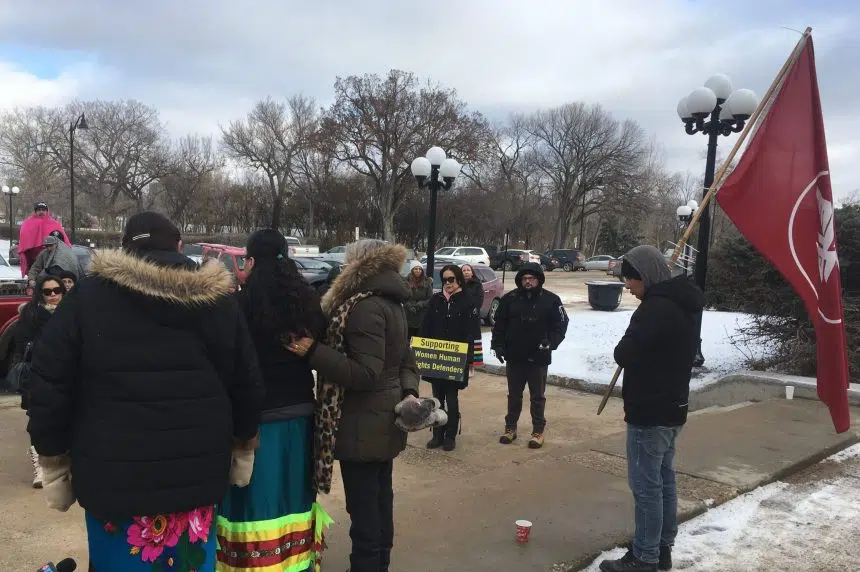A vice-chief of the Federation of Sovereign Indigenous Nations (FSIN) wants to see more action taken to support Indigenous women who allege doctors and nurses pressured them to consent to being sterilized after giving birth.
“I want to see criminalization of this act,” Heather Bear said while speaking at a march in front of the Saskatchewan Legislature on Tuesday.
“It’s overwhelming grief. Women that I have talked to, their whole lives, their future, their desires (are ruined).”
Bear, several Saskatchewan First Nation chiefs and a group of supporters marched from the First Nations University of Canada to the legislature to show their support for the women and the class action lawsuit of which they’re a part.
Three of the plaintiffs in the lawsuit are working with the Saskatoon-based firm Semaganis Worme Lombard.
Lawyer Helen Semaganis said they’re looking for three resolutions: A policy that stops forced and coerced sterilization; financial compensation for the affected women; and, government action to look at criminal sanctions for the actions.
Semaganis emphasized that she hopes the outcome of the lawsuit creates awareness for medical professionals, so they will “stop and think about it, and do the right thing when this scenario presents itself to them.”
Bear asked members of the public to have empathy and put themselves in the women’s shoes.
“Imagine if it was you. If I can just call on any mother or family, what if that was your family?” she said.
Bear found it particularly hard to speak with young women who she alleges were forced to have the procedure done.
“The young girls that were younger, and who are old now, realize, ‘That shouldn’t have been done. That shouldn’t have happened to me,’ ” she said.
Bear underscored the devastating impact of the procedure.
“It’s too late. You can’t turn it back,” she said. “Once it’s done, it’s done.”







